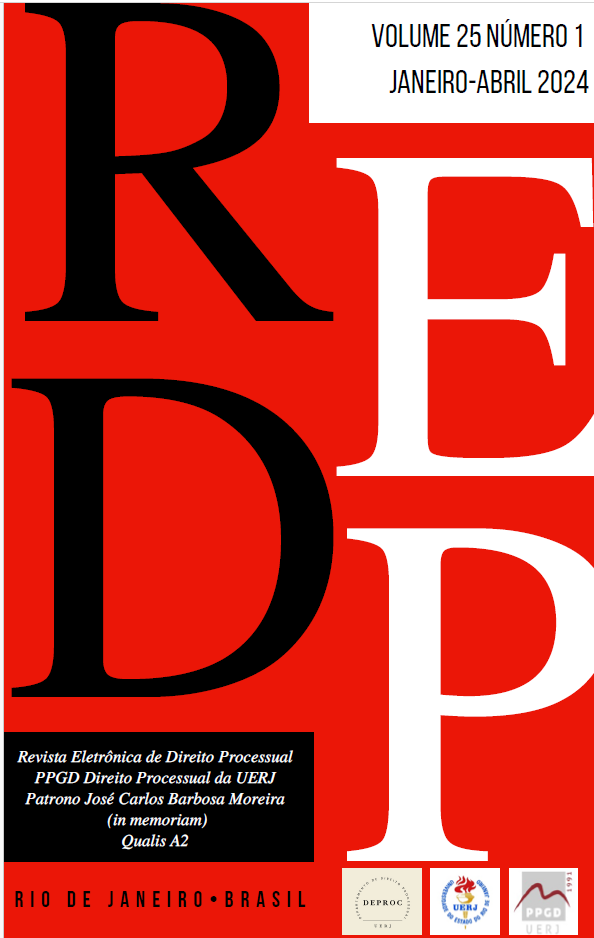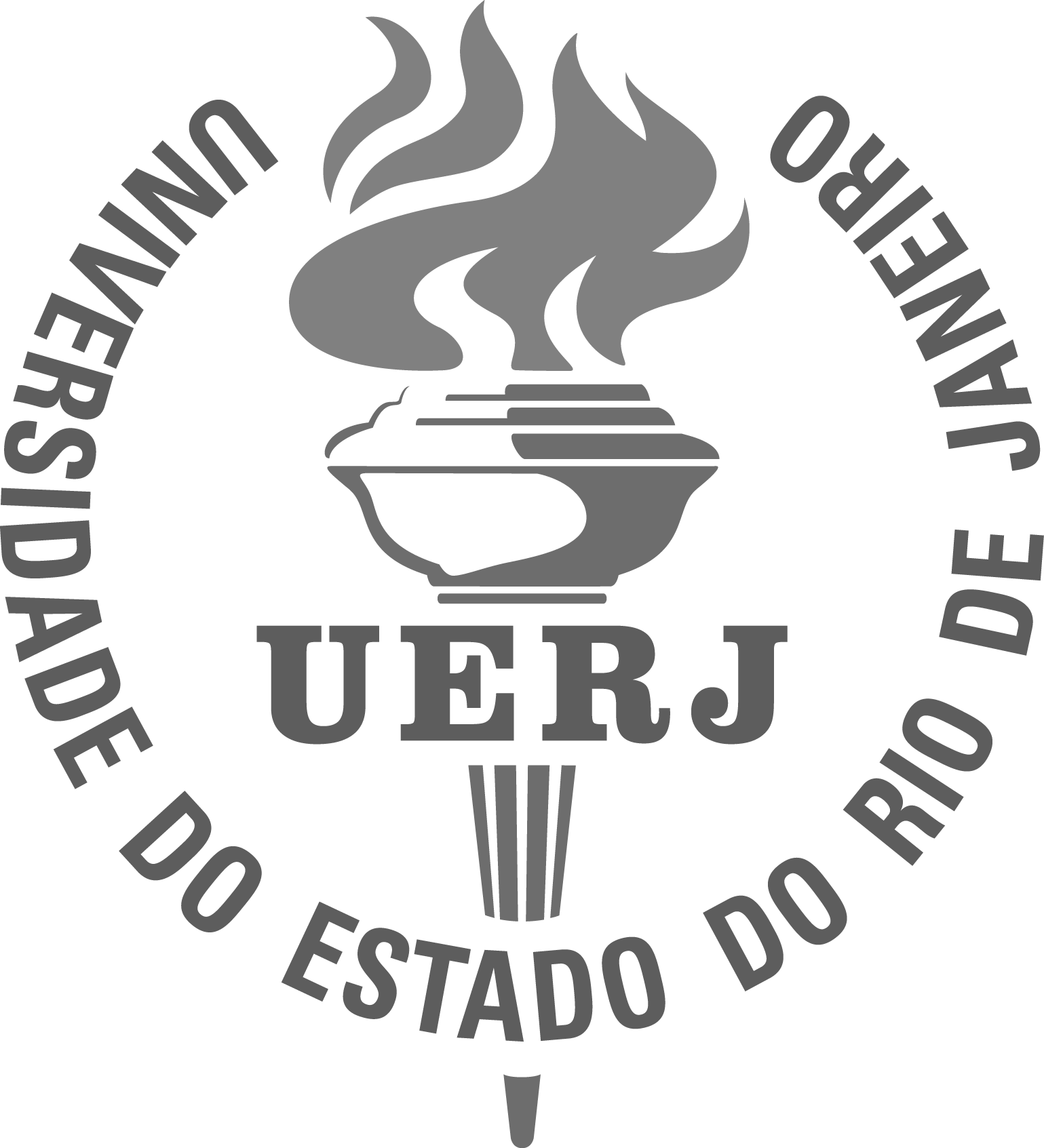A TEORIA DA DERROTABILIDADE DAS NORMAS JURÍDICAS E OS SEUS INFLUXOS NO SISTEMA BRASILEIRO DE PRECEDENTES JUDICIAIS
DOI:
https://doi.org/10.12957/redp.2024.81918Abstract
This article proposes to analyze the possibility of the legal defeseability theory being used by the law operator to not apply a judicial precedent with binding effectiveness. To implement this analysis, the concept of judicial precedent is presented, its nuances in the Brazilian legal system as opposed to the common law, the graduation of its binding force, its approximation to the legal norm, as well as its application in concrete cases. Based on these introductory concepts, we went on to evaluate the approximation of judicial precedent to the essence of legal norms, especially in terms of generality and abstraction. Once the normative character was verified, the limits to be observed in the formation of judicial precedents were analyzed, especially in light of the understanding that judicial activity is creative of the legal norm, using as a guide for this investigation judgments of the Federal Supreme Court that, in concentrated control of constitutionality, invalidated precedents of the jurisprudence of the Superior Labor Court. A counterpoint was also established between the precedents and the legitimacy of the legislative reaction, considering the ambivalence between self-restraint and the Supreme Court's counter-majoritarian function. The next step was to evaluate how precedents fit into the traditional normative species - rules and principles - on which occasion the concepts presented by national and foreign doctrines were identified, in conjunction with the particularities of the ratio decidendi and the objective of standardizing jurisprudence. Thus, having understood mandatory precedents as rules drawn up by the Judiciary, the study went on to tackle the issue from the point of view of the theory of the defeasibility of legal norms, presenting a brief historical contextualization of its origin, its concept, the understanding of the doctrine and its dialogue with the subject matter. Also, from the perspective of the normative character of precedent, we inspected the systems applicable to distinguishing and overruling, defining each of these techniques in the context of overruling rules. It was observed that the legal theses consolidated in the judicial precedents are incapable of exhausting all possibilities related to questions of law, similar to what happens with the laws elaborated by the parliament. It was concluded that the defeseability theory can be exceptionally used to justify the non-observance of a thesis established in a binding precedent, especially when demonstrating the implied exception, without compromising the stability, integrity and coherence of jurisprudence
Downloads
Published
How to Cite
Issue
Section
License
Copyright (c) 2024 Roberto de Aragão Ribeiro Rodrigues, Augusto Paiva Siqueira

This work is licensed under a Creative Commons Attribution 4.0 International License.
Todos os artigos publicados na Revista Eletrônica de Direito Processual (REDP) (Departamento de Direito Processual, Universidade do Estado do Rio de Janeiro, Brasil) são licenciados por meio de uma Licença Creative Commons - Atribuição 4.0 Internacional (CC BY 4.0).
Os autores retêm os direitos autorais de seu artigo e concordam em licenciar seu trabalho com a licença CC BY 4.0, aceitando assim os termos e condições específicos desta licença disponíveis no seguinte website: https://creativecommons.org/licenses/by/4.0/legalcode.
- Os autores concedem à REDP o direito de primeira publicação, de se identificar como publicadora original do trabalho e concedem à revista uma licença de direitos não exclusivos para utilizar o trabalho das seguintes formas: Reproduzir, vender e distribuir cópias eletrônicas ou impressas do manuscrito como um todo, de partes específicas do manuscrito e de suas traduções para qualquer idioma;
- O uso do artigo por terceiros é livre, contanto que a integridade da publicação seja mantida e seus autores originais, periódico de primeira publicação e detalhes de citação sejam identificados.
Dentro dos termos da licença, os autores podem entrar em acordos contratuais adicionais separados para a distribuição não exclusiva da versão publicada do trabalho na revista.
Copyright and Licensing
All articles published in the Procedural Law Electronic Review (REDP) (Department of Procedural Law, State University of Rio de Janeiro, Brazil) are licensed under a Creative Commons License - Attribution 4.0 International (CC BY 4.0).
- Authors retain copyright to their article and agree to license their work under the CC BY 4.0 license, thereby accepting the specific terms and conditions of this license available at the following website: https://creativecommons.org/licenses/by/4.0/ legal code.
- Authors grant REDP the right of first publication, to identify itself as the original publisher of the work, and grant the journal a non-exclusive license to use the work in the following ways: Reproduce, sell and distribute electronic or printed copies of the manuscript as a whole, of specific parts of the manuscript and its translations into any language;
- Use of the article by third parties is free, as long as the integrity of the publication is maintained and its original authors, first publication journal, and citation details are identified.
Within the terms of the license, authors may enter into separate additional contractual agreements for the non-exclusive distribution of the published version of the work in the journal.






